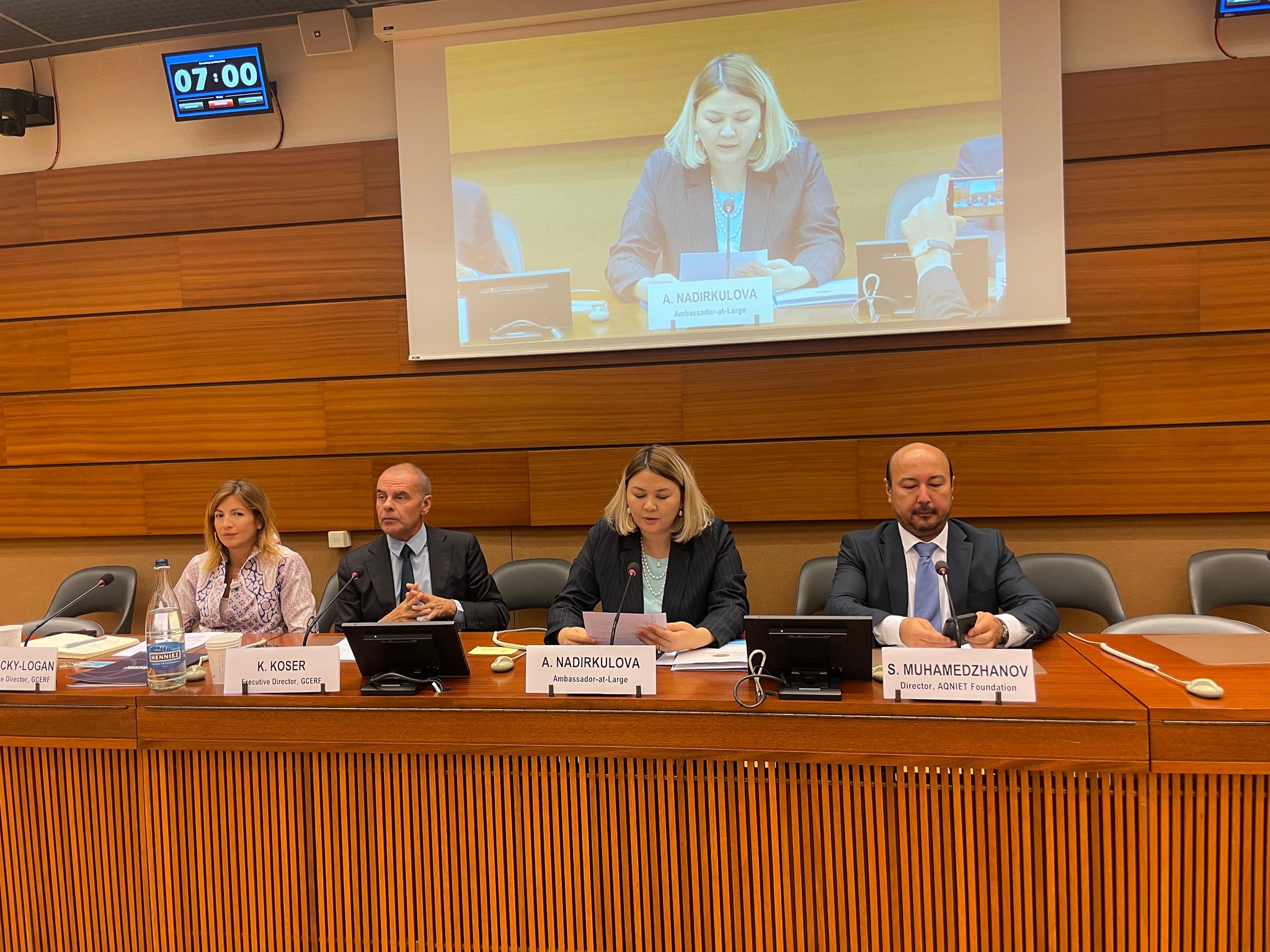ASTANA – The UN Human Rights Council hosted the panel discussion on quality education for peace and tolerance for every child on Sept. 18 within the council’s 57th session, which takes place from Sept. 9 to Oct. 11 in Geneva.

Photo credit: Permanent Mission of Kazakhstan to UN Office and other International Organizations
The topic is promoted by Kazakhstan in accordance with the Kazakh resolution adopted last year.
The event, held with the support of the Permanent Mission of Kazakhstan to the United Nations Office at Geneva (UNOG) and the Office of the UN High Commissioner for Human Rights, brought together representatives of more than 130 countries.
As a speaker of the event, Kazakh Ambassador-at-Large of the Foreign Ministry Alua Nadirkulova outlined the role of education as a key tool for ensuring peace and stability of societies in all parts of the world. Noting the importance of education in the rehabilitation and reintegration of children affected by armed conflicts, she shared Kazakhstan’s experience in the repatriation and reintegration of Kazakh children from conflict zones in Syria and Iraq, reported the press service of the Permanent Mission of Kazakhstan to the UN Office.
“The countries of the Central Asian region, among many other states, have been working on the repatriation and reintegration of children affected by armed conflicts and terrorism. As our experience shows, education is crucial for the recovery of these children and the restoration of their future,” she said.
Kazakhstan has been deeply committed to advancing humanitarian efforts and addressing the human rights challenges faced by women and children and the recovery process in general. As a result of the special humanitarian operations, 725 Kazakh citizens were returned to their homeland, including 37 men, 188 women and 500 children.
Nadirkulova noted that after completion of all rehabilitation procedures, all those who returned from the conflict de-escalation zones in Syria and Iraq acquired equal rights with other Kazakh citizens, including the right to education.
From those repatriated, over 200 children were enrolled in preschool education and more than 200 children were enrolled in schools. Also, more than 140 children were given the opportunity to participate in creative activities, sports and extracurricular activities. According to her, the children are socialized through recreational activities such as visits to theaters, museums, excursions and other activities.
To avoid stigmatization, all children born in war zones are documented with birth certificates indicating home cities of their parents as their birth places. This is important for the adaptation of children in society, in the schools they attend, Nadirkulova noted.
“We must ensure that the rights of the child are at the center of peace-building processes and that education promotes respect for human rights and fundamental freedoms, mutual understanding, gender equality and friendship among all. Only through respect for human rights and fundamental freedoms can peace and tolerance be truly promoted,” she said.
The Permanent Mission of Kazakhstan to the UNOG, the Global Community Engagement and Resilience Fund (GCERF) and the Aqniet Kazakh Foundation organized a side event titled Right to Live in Peace: Reintegration of Kazakh Citizens from Conflict Zones into Society. The event focused on the importance of ensuring the fundamental rights and freedoms of returnees from the conflict zones in Syria and Iraq as part of the process of their reintegration into society.
Khalid Koser, GCERF executive director, commended the work done by Kazakhstan on this topic and underlined the recently established partnership of GCERF with Kazakhstan.
A repatriate of the Jusan humanitarian operation also took part in this event and shared her personal sad experience of staying in a Syrian camp.
